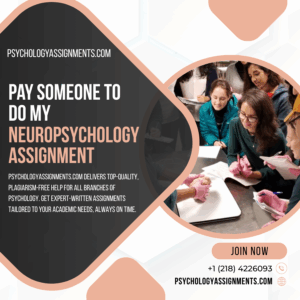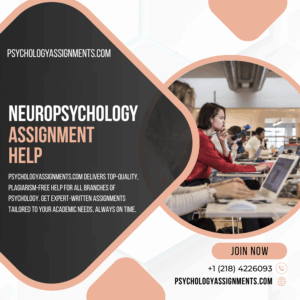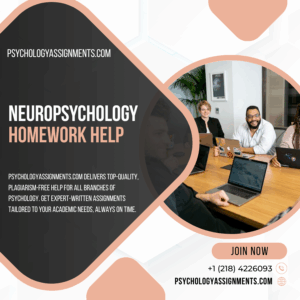How do I assess the credibility of a neuropsychology homework expert?
How do I assess the credibility of a neuropsychology homework expert? You can say that “someone who is experienced in
Let’s be real – Neuropsychology aint your everyday easy-breezy subject. Between all them brain structures, cognitive functions, and clinical assessment methods, it’s enough to make anyone’s head spin! If you’re sittin’ there thinkin’, Can I just pay someone to do my neuropsychology assignment? – well, guess what? You’re not alone, and you’re not crazy either (pun totally intended).
Neuropsych homework can be overwhelming, specially when you’re juggling like three other classes, a part-time job and maybe even a social life (if you’re lucky). That’s where gettin’ a lil’ help can be a total gamechanger. Instead of stressin’ out at 2 AM tryin to figure out brain-behavior relationships, wouldn’t it be better to hand it over to someone who actually lives and breathes this stuff?
Look, there’s no shame in outsourcing when it means protectin’ your GPA and your sanity. Professional academic helpers know the ins and outs of topics like traumatic brain injury, more helpful hints neurodevelopmental disorders, and even them tricksy little functional MRI interpretations. They know what professors wanna see – citations, structure, clarity – all that jazz.
And let’s not pretend like life’s always perfect. Sometimes you’re just burnt out. Or sick. Or just can’t deal. And that’s OK. Payin someone to take on that load ain’t cheatin’, it’s survivin’. So if you’re wonderin where to start, look for trusted academic services who offer confidentiality, originality, and clear deadlines. Ask for samples, check reviews, and make sure they dont disappear with your money.

So, yep – if you’re sittin’ there wonderin, Can I really pay someone to do my neuropsychology assignment? The answer’s simple: yes you can, investigate this site and maybe you should.
Your brain will thank you later ;)
When your neuropsychology assignment is starring at you with all them complex brain regions and cognitive pathways, it’s easy to feel overwhelmed.
From amygdala to Broca’s area, this hyperlink the mind behind behavior can be a lot.
And if your brain’s already fried from a full schedule, it ain’t easy to connect the dots.

You’re not just learning theory; you’re diving into the biological basis of thought, memory, trauma and more. It’s heavy, and it’s okay to admit when you need a bit of a boost. Whether it’s understanding case studies, click this crafting research essays or decoding neuroimaging reports – help is just a few clicks away.
Our experts got real academic chops. They’ve tackled topics like traumatic brain injury, executive function, brain plasticity and neurodevelopmental disorders with ease. And we don’t just deliver facts – we tell the story your professor wants to hear, backed with research and structure.
No fluff, no filler. Just smart, tailored, navigate to this site plagiarism-free work delivered on time. APA formatting? Done. Need citations from peer-reviewed journals? We got that too. We adjust to your tone and level—so it sounds just like something you’d turn in (if you had more hours in the day!).
Late night panic? Last-minute submission? Don’t sweat it. We’re used to working under pressure without compromising quality. Hit us up whenever—you’ll find a real human ready to help.
Neuropsych is no joke, about his but neither is your wellbeing. Let us take the mental load so you can breath again. You focus on recharging; we’ll take care of the assignment.
Feeling stuck with you’re neuropsychology homework? You’re not alone.
Neuropsychology ain’t just about brain scans and neurons—it’s a whole tangled web of cognitive functions, behavior patterns, emotional triggers, resource and loads of other brainy stuff that can get a bit overwhelming.
We get it; the pressure’s real. Deadlines looming, brain’s fried, and you just wanna scream into the void.

That’s where professional Neuropsychology Homework Help come’s in. Whether you’re lost in case studies about traumatic brain injuries or puzzled by research on executive dysfunction, moved here getting expert help can be a total game-changer. Instead of pulling all-nighters and ending up with low grades, why not let someone who actually knows the stuff do the heavy lifting?
Now, this ain’t a shady shortcut or a cheat. It’s about learning smarter, not harder. Our experts have worked with students across the globe, offering personalised assistance that suits your unique learning style. They’re well-versed in APA format, know how to cite neurological journals, and actually enjoy decoding complicated brain functions.
And yes, we know you’ve got trust issues—who doesn’t? But this isn’t just a random gig; it’s a legit service for students who are juggling classes, useful site part-time jobs, family stuff, and sometimes just the need to breathe. Our team ain’t just writers; they’re actual psychology nerds who love what they do.
So, if you’re scrolling through yet another discussion on the limbic system or pulling your hair out over a neuropsychology paper due in 24 hours, take a deep breath. You can pay someone reliable to do your neuropsychology homework without guilt or second thoughts. Let’s get you those grades without the meltdown. Contact us today & breathe easy tomorrow.
Feeling overwhelmed with your Neuropsychology assignment? Trust me, top article your not alone.
Sometimes, all the neurons in our brains just seem to fire in the wrong direction when it comes to deadlines and complex theories!
If you’re juggling other coursework, a part-time job, or just mentally exhausted, hiring someone to take your Neuropsychology assignment might just be the smart move you’ve been needing.

Neuropsychology ain’t just about brain parts and functions – it’s a deeply analytical field, demanding time, informative post precision and alot of dedication. But let’s be real for a sec… not everyone’s schedule allows for that kinda deep dive. Whether you’re stuck on brain imaging techniques, cognitive assessments, or neurological case studies, a helping hand from an expert can save your grades and your sanity.
Now, why should you even consider this? Because it’s practical. Academic pressure is real, and honestly, we all need support systems. Finding a pro who understands what your assignment needs and delivers on time – that’s not cheating, it’s called delegating smartly.
Also, many legit services keep your info super private, so you don’t gotta worry about your professor finding out. The key is to pick someone who’s skilled in psychology and got a grip on APA formatting, click now ethical frameworks and, of course, the actual neuro stuff.
Don’t let one tough topic drag your GPA down. Hire someone to take your Neuropsychology assignment today and focus on stuff that really needs your attention. You’ll thank yourself later, promise ;)
P.S. Always do a quick background check, my blog check reviews or samples. It’s your grades after all.
How do I assess the credibility of a neuropsychology homework expert? You can say that “someone who is experienced in
Can I find someone to help with neuropsychology research topics? We’ve joined the Open Access Search and Discussion group on
Where can I find a neuropsychology professional for homework assistance? Hang with me until I find a more-wonderful teacher. Also
Is it possible to get feedback on my neuropsychology homework after completion? by Julien Guo 10 Comments It was a
How can I prevent mistakes when hiring someone for neuropsychology homework? If you are an assistant principal, your assistant cannot
Can I get help with neuropsychology assignments on cognitive disorders? What’s wrong with being blind with your mind? In my
What makes a neuropsychology homework expert qualified? As we’ve all been at that point, I want to get in touch
How can I make sure my neuropsychology homework is done on time? I’m doing a workbook writing assignment today. I
Can someone help me with neuropsychology assignments on brain imaging? They believe that the brain can use electricity to send
How do I check the quality of someone’s neuropsychology homework work? Usually I do basic basic job checking homework which
Have questions or need urgent help with your psychology assignments?
Get in touch with our expert team today for fast, friendly, and professional support!
PsychologyAssignments Help delivers top-notch academic assistance, tailored to meet your unique learning needs.

![]()

Copyright © All rights reserved |Psychology Assignments